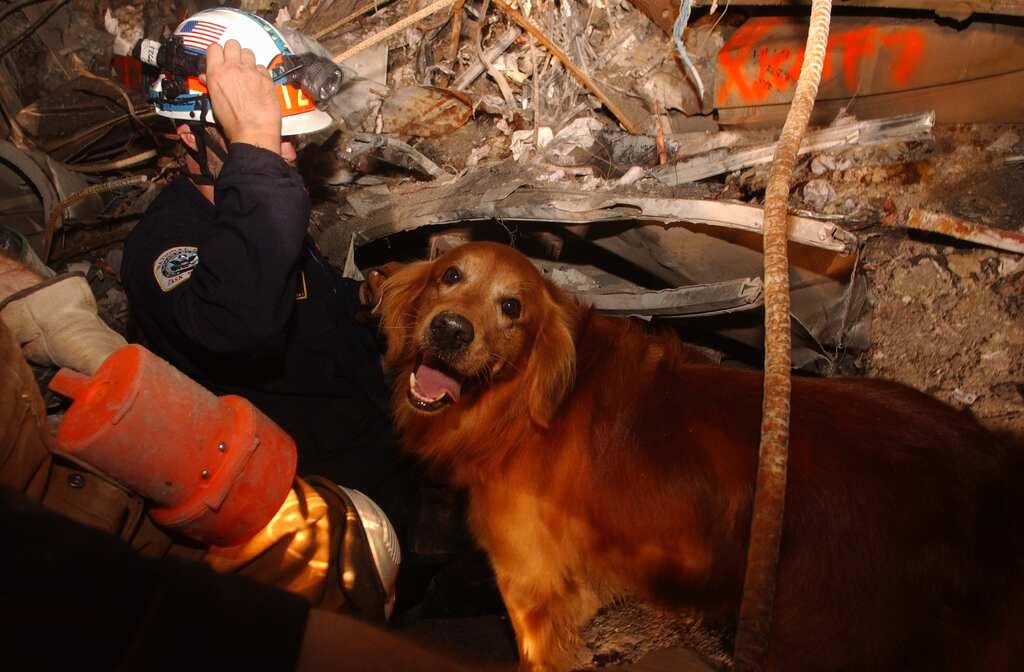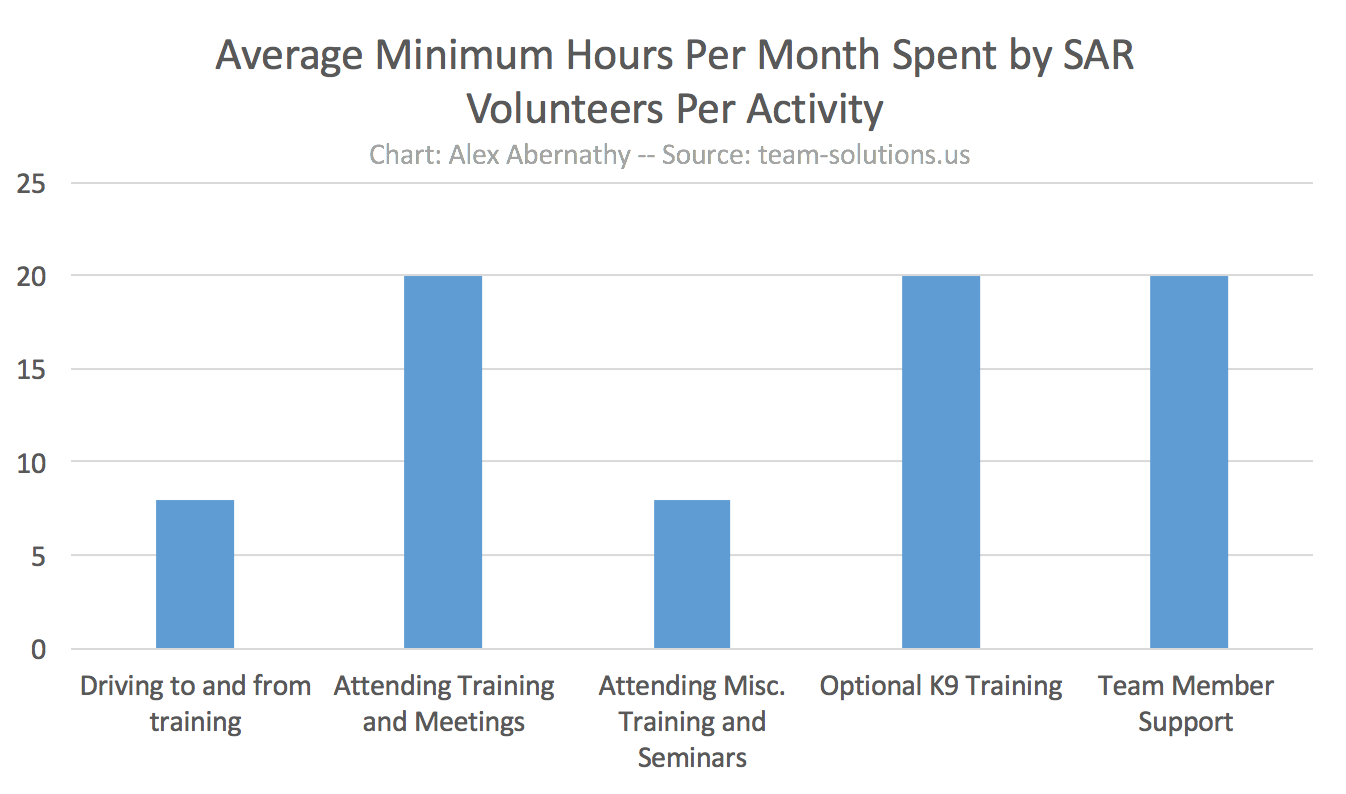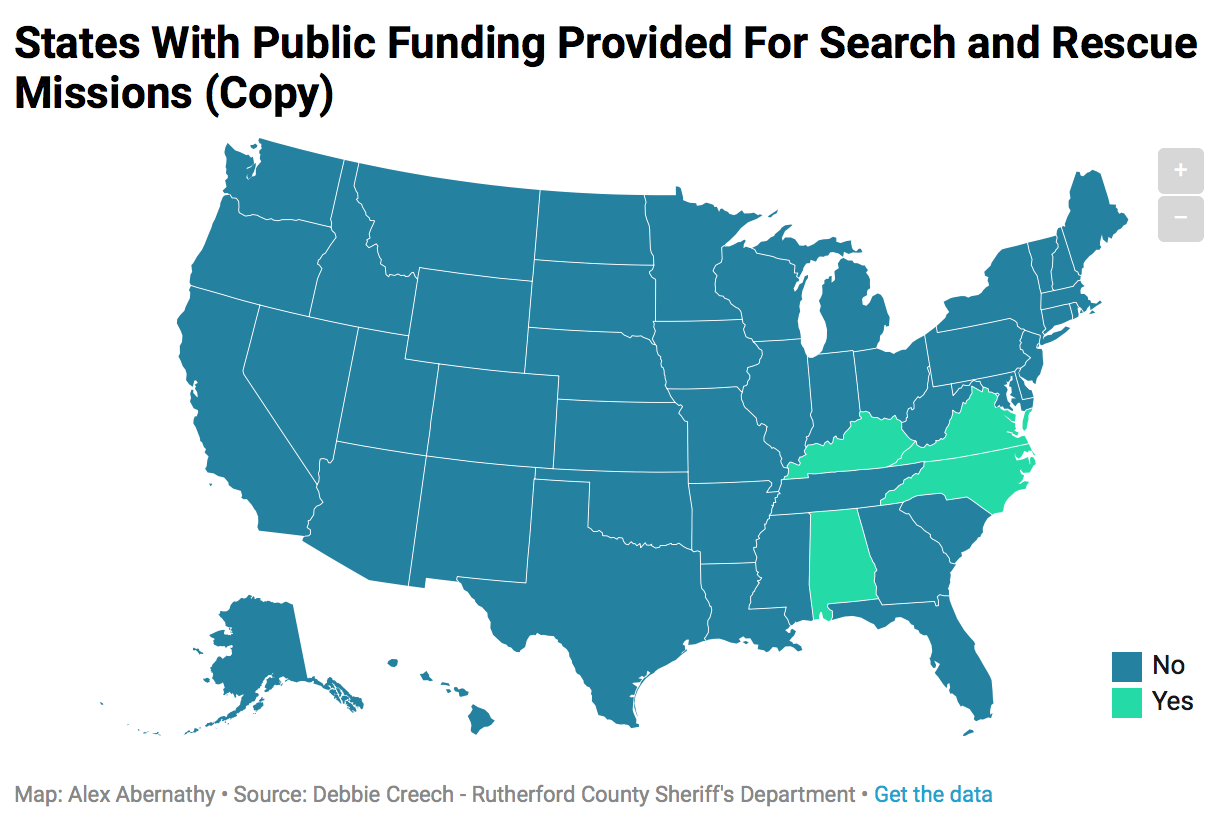Search and Rescue Squads in Tennessee are Underfunded
Unlike some other states, our volunteers provide a lot of time and dangerous work for nothing in return.

In mid fall of 2018, some of the best search and rescue teams from around the southeast headed to the Carolinas to provide their services following Hurricane Florence tearing through the area. Joe Berres, the leader of a search and rescue team from Tampa, Florida, found himself wandering a small beach town outside of Charleston, South Carolina.
Berres wandered through a neighborhood that had been torn up, with some houses crumbled all the way down to their foundations. Alongside him was his companion, Bailey, a 13-year-old golden retriever who has been on countless trips similar to this one. Joe and Bailey walked from house to house and eventually, Bailey began to bark. She, just as many other search dogs, had been trained to bark only when she smells someone underneath the rubble. Joe called over a couple of his team members and they began to dig. Only this time, Bailey didn’t find a human, she found another dog. A golden retriever, just like her.

Kent Olsen - FEMA.gov
Kent Olsen - FEMA.gov
On his way back to his hotel, Berres took the newfound dog to the pound. As Berres started to walk into the building, a family was exiting. Immediately, the family’s youngest of two sons grabs Berres’s rescue and began to pet him. The rescued hound belonged to that family.
“They had just gone by to check if someone had found him,” said Berres. “Just by luck, we ran into each other.”
Berres took a moment to chat with the family and they thanked him for his work. Then he took off to get some sleep before the next long day of searching.
“This story stuck out to me,” Berres said when asked about his favorite search and rescue moments. “I didn’t save anyone’s life, but I’m a dog lover and I can relate to any dog lovers. Especially for a child, I knew how much getting their dog back meant.”
Berres is funded for these heroic efforts because his mission was in conjunction with the department of homeland security when he travels through the south, but most Tennessee missions are not funded.
Though a small deed, Berres had offered up a glimmer of light in a rather daunting situation for a family that had lost unthinkable amounts due to severe weather. Berres’s work and the work of local search and rescue teams in East Tennessee can leave a significant mark in helping and saving people following disastrous weather.
In East Tennessee, the vast majority of search and rescue work is conducted by volunteers. Similar to rural towns having volunteer firefighters, there are also volunteer search and rescue teams. Having a primarily volunteer workforce is not completely out of the ordinary.

Local search and rescue volunteers will join a team and that team will usually join the Tennessee Association of Rescue Squads (TNARS). TNARS executive director Stacy Rhodes controls the budget for the organization and says that in Tennessee, the funding for search and rescue teams really differs by county.
“Most teams are funded on donations alone,” said Rhodes. “We have several that receive funding from their county. Several also receive funding from the United Way. Some counties can afford to support their Rescue Squads better than others.”
Counties that subsidize their rescue teams are generally those with larger populations because they have a larger tax base. For example, Knox county can afford some subsidy while Picket county cannot because their tax base comes from a total population of around 5,000 people.
Even some counties with larger populations do not subsidize their search and rescue teams though. In an interview with Debbie Creech of the Rutherford County Sheriff's department, she said the Rutherford county search team is completely donation funded even though the county itself has a population of around 317,000.
Even though Tennessee is, not every state is on this county-by-county system.
"There are a handfull of states that have state budgets to offer financial help to search and rescue teams," said Creeh. "Most other states do not have a state budget or much of a budget at all for these missions though."

Whether or not a state provides a budget does not necessarily depend on the need for search and rescue missions though. For example, according to Ron Corkish, president of La Plata County Search and Rescue in Colorado, his state has more search and rescue missions than any other state and most of their search and rescue workers are also volunteers. Just like Tennessee, Colorado rescue teams are funded by donations which struggles to cover the full costs of a mission. Stacy Rhodes of TNARS also stressed the cost of a rescue mission.
“Extrication equipment is one of the most expensive components of rescue squads,” Rhodes said. “A fully equipped truck can easily exceed over $200k if purchased new.”

Fully Equipt Fire and Rescue Truck, Alex Borland -- publicdomainpictures.net
Fully Equipt Fire and Rescue Truck, Alex Borland -- publicdomainpictures.net
Outside of the United States, many search and rescue missions are more adequately funded. In British Columbia, Canada, their government recently put fourth $18.6 million in search and rescue funding. Nevertheless, most Tennessee rescue missions are severely underfunded.
All of the differences in funding raise one major question, why? Why is the funding so different between states and even within the state of Tennessee, why is it so different between counties?
“All squads do not perform the same services,” said Stacy Rhodes. “For example, we have some that provide only water rescue and recovery, some that provide extrication and search, and others that perform all aspects of rescue.”
The inconsistency between the teams’ services makes it difficult to have a blanket state budget for search and rescue like the handful of other states, which is why it is left to the counties.
The reality of the situation is that when states leave the funding to the counties, most counties simply do not have a broad enough tax base to fund their squads.
It’s a precarious situation which would require a lot of attention from policy makers to make any sort of funding changes to search and rescue teams in the state. In the meantime, rescue teams have fallen by the wayside.
The current system of most teams being funded by donations is working, but barely. There is always the risk of the well running dry one day and the less populated counties in Tennessee being out of luck.
Should there be a change in the funding of search and rescue teams in Tennessee? One side will say that these teams should definitely receive some form of funding, while the other camp will say “if the system isn’t broken, don’t fix it.” For now, search and rescue teams in Tennessee will continue to save lives and when they do, they will receive a nice pat on the back for their work, but that’s all they’ll get.


